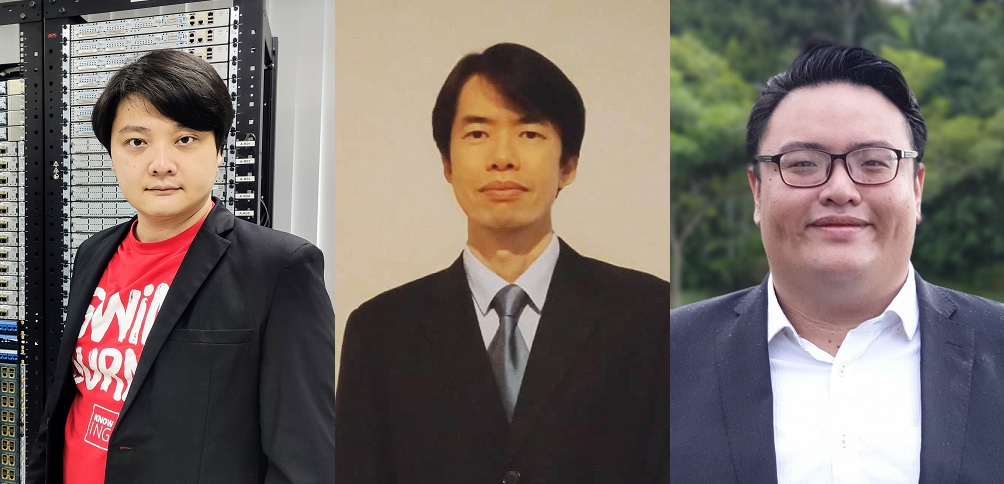KUCHING – Swinburne’s research projects on multi-sensor, explainable artificial intelligence (AI), and IoT (Internet of Things) sensor data have been awarded grant amounting to RM172,594 by the Ministry of Higher Education (MoHE) under the Fundamental Research Grant Scheme (FRGS).
A total of RM64,120 was awarded to the project ‘Exploring Multi-Modal Fusion-Based Indoor Navigation for Human-Following using Perception Scenes and Deep Learning’ led by Principal Investigator (PI) Dr Mark Tee. The project is a follow-up from the findings of a doctoral research on multi-sensor fusion applied to companion robot navigation.
Autonomous motion and pathfinding in enclosed spaces remain a challenge due to limitations of self-localization technologies and the environment’s dynamic conditions. Previous work was carried out to create a novel navigation model that simplifies decision-making when a companion robot encounters an obstruction while trying to relocate itself to a desired proximity of a target escort. However, the weightages assigned to each sensor source had to be adjusted manually before the system can operate optimally in an environment.
The research will study what aspects of the environment, coined as a ‘Perception Scene’, influence the adjustments of these weightages. Once these relationships are established, it is theorized that Deep Learning techniques can help to study these adjustments so that a robot can automatically adjust its weightages according to its changing operating environment, and learn to do it better over time with minimal human intervention.
A project titled ‘Scalable Time Series Pattern Recognition on IoT Sensor Data by Using Magnitude Based Dimension Reduction’ led by PI Sim Kwan Hua received a total grant of RM58,390. Time series data generated from widely available IoT sensors possess a tremendous avenue for knowledge discovery with valuable insights into potential solutions to many demanding and pressing problems confronted by various industry and application domains.
However, repeated time series patterns may exist in various length and they are highly scalable. This has exacerbated the effort of time series pattern recognition, which is typically hindered by the computational complexity due to the highly demanding search space. This research project aims to retrieve the frequently repeated patterns from a given long time series data set with no prior knowledge on the time series pattern irrespective of the scale.
Meanwhile, the ‘Explainable Artificial Intelligence (XAI) for Lung Disease Diagnosis and Severity Classification’ project led by PI Dr Joel Than Chia Ming received a funding of RM50,084. The project team members comprise Swinburne’s academics Professor Patrick Then and Dr Kelvin Yong, as well as Professor Norliza Mohd Noor (UTM), Associate Professor Mohd Fauzi (UTM), and Dr Wan Mohd Ya’akob (UTEM).
The project’s main objective is to discover the trends and patterns utilised by sophisticated AI methods used for diagnosing lung diseases and its severity. With this project, it is hopeful that AI will not remain as an unfathomable concept but it will be more explainable through images and equations, as well as increase transparency and acceptance by medical professionals. This is particularly important as the world and the nation is moving in the direction of Industrial Revolution 4.0 where AI will play a more dominant role in different sectors including the medical sector.
Swinburne’s School of Information and Communications Technologies (ICT) offers the Bachelor of Computer Science with a major in Cybersecurity, Internet of Things, Software Development, and Data Science, as well as the Bachelor of Information and Communication Technology with a major in Network Technology and Software Technology. It also offers postgraduate programmes, the two-year Master of Science (Research) and four-year Doctor of Philosophy (PhD).
The computing courses are externally vetted and accredited by the Australian Computer Society, ensuring it meets the highest standard of the profession and the industry. The courses prepare students towards professional certifications by CISCO, AWS Academy, Tecforte, SAS Institute, CompTIA, Huawei, and more.
Scholarships at both Master’s and PhD levels are available for those who are keen to pursue their postgraduate study. For scholarships details, email to Head of School of ICT Professor Patrick Then at pthen@swinburne.edu.my.
For further enquiries, email to study@swinburne.edu.my. For more information about Swinburne, visit www.swinburne.edu.my or its Facebook page (@swinburnesarawak), Instagram (@swinburnesarawak), Twitter (@Swinburne_Swk) or YouTube channel (Swinburne Sarawak).


